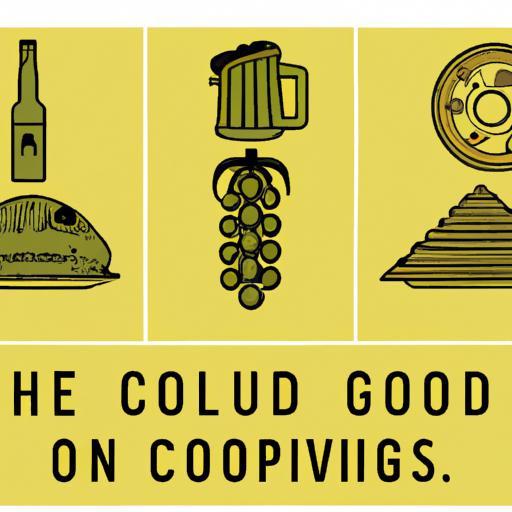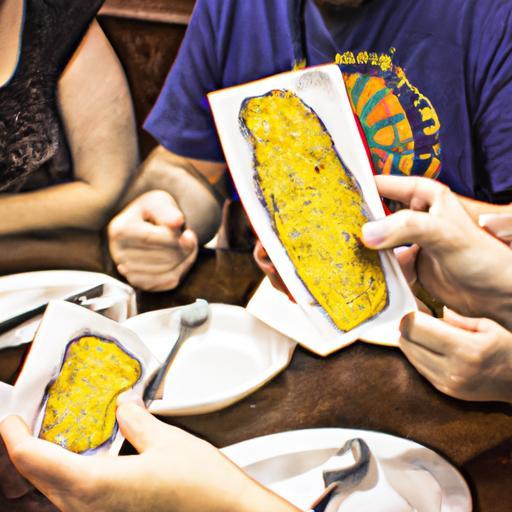Have you ever wondered what’s behind the tantalizing flavors and diverse dishes that make up our global food culture? Why do certain cultures revere specific ingredients, while others have unique culinary traditions passed down through generations? It’s a fascinating world where history, geography, and cultural values intertwine to create the incredible tapestry of food we see today. This article delves into the captivating world of food culture research, exploring its historical significance, the methodologies used to study it, and the profound impact it has on both society and individuals.
What is Food Culture Research?
Defining the Scope of Food Culture
Food culture encompasses far more than just the food itself. It’s a captivating blend of:
- Customs and Traditions: Think holiday feasts, fasting rituals, or even the etiquette surrounding specific meals.
- Food Preparation Techniques: From ancient methods of preserving food to modern molecular gastronomy, the “how” is just as important as the “what.”
- Social Practices Around Food: Sharing meals with loved ones, the role of food in celebrations, and even taboos surrounding certain ingredients all fall under this umbrella.
research on food culture seeks to understand these multifaceted aspects, providing insights into the human experience through the lens of what we eat.
A Glimpse into the Past: Historical Perspective
The desire to understand food culture isn’t new. Early pioneers like Jean Anthelme Brillat-Savarin, a French gastronome, emphasized the sensory and cultural importance of food in his writings. His work laid the groundwork for viewing food as more than just sustenance. Similarly, renowned anthropologist Margaret Visser delved into the historical and social significance of our food choices, highlighting how seemingly simple acts like using a fork or setting a table are steeped in cultural meaning.
These early explorations paved the way for more structured research, prompting scholars from various disciplines to investigate the evolution of foodways and their impact on societies throughout history.
Methodologies: Uncovering the Layers of Food Culture
Modern food culture research employs a diverse toolkit of methods, each providing a unique perspective:
1. Qualitative Research: Stories From the Dinner Table
- Interviews: Researchers engage in conversations with individuals to gain in-depth understanding of their personal experiences, beliefs, and practices related to food.
- Ethnography: This immersive method involves researchers embedding themselves within communities to observe and participate in daily life, including food-related activities. This provides rich, contextual insights into food cultures.
2. Quantitative Research: Finding Patterns in Food Consumption
- Surveys: By collecting data from a larger sample size, researchers can identify trends and patterns in food consumption, preferences, and attitudes.
- Statistical Analysis: This helps to uncover relationships between factors like socioeconomic status, geography, and dietary choices.
By weaving together insights from both qualitative and quantitative approaches, researchers gain a more holistic understanding of food cultures.
The Impact of Food Culture: From Individual to Society
Food culture is much more than just recipes and ingredients; it’s a powerful force that shapes us in profound ways:
1. Identity and Belonging
- Cultural Heritage: Food traditions passed down through generations connect us to our ancestry and provide a sense of belonging within a cultural group.
- Regional Identity: Think of the pride associated with specific dishes or ingredients unique to certain locations. Food becomes a symbol of place and community.
2. Social Cohesion
- Shared Meals: The act of sharing food fosters social bonds and strengthens relationships. From family dinners to community feasts, food plays a central role in bringing people together.
- Celebrations and Rituals: Many cultures use food to mark important life events, further solidifying its role in social cohesion.
3. Health and Well-being
- Traditional Diets: Research increasingly shows the health benefits of traditional diets, often rich in whole foods and time-tested culinary practices.
- Globalization’s Impact: While globalization has led to greater food diversity, it has also raised concerns about the homogenization of diets and the rise of processed foods, impacting global health patterns.
Conclusion: A World of Flavor Awaits
Research on food culture allows us to appreciate the amazing diversity of culinary traditions across the globe. From the historical significance of certain dishes to the intricate social practices surrounding food, there’s always something new to discover. As we continue to explore the world through its food, we gain a deeper understanding of ourselves, our history, and the interconnectedness of humanity.
So, what are you waiting for? Embark on your own culinary adventure! Explore the diverse flavors of your city, learn about the history behind your favorite dishes, or connect with others through the joy of shared meals. There’s a world of delicious discoveries waiting to be made.
ruouhannk.com
Disclaimer: This article is for informational purposes only and should not be considered as medical or nutritional advice. Consult with a qualified professional for personalized dietary recommendations.
 The Evolution of Food Culture: From Ancient Traditions to Modern Delights
The Evolution of Food Culture: From Ancient Traditions to Modern Delights
The evolution of food culture is a journey through time, reflecting our changing relationship with food and its significance in our lives.
 Exploring Food Culture: Unveiling Insights Through Methodologies
Exploring Food Culture: Unveiling Insights Through Methodologies
Researchers use diverse methodologies to uncover the complexities of food culture, providing valuable insights into human behavior and societal norms.
 Nourishing Connections: Food Culture's Impact on Society and Individuals
Nourishing Connections: Food Culture's Impact on Society and Individuals
Food culture extends beyond sustenance, shaping our identities, nurturing social bonds, and influencing our overall well-being.

